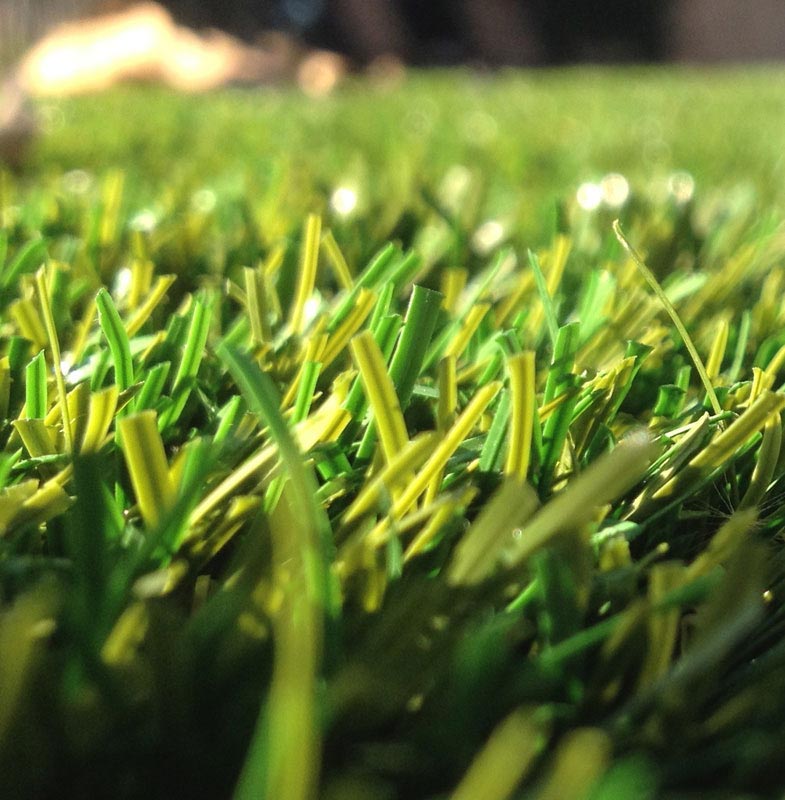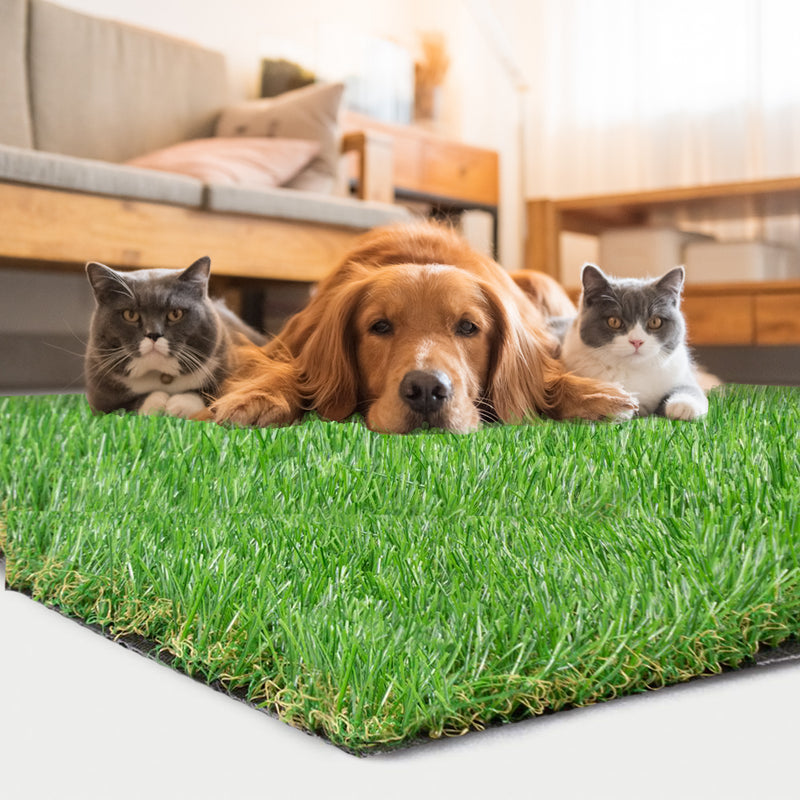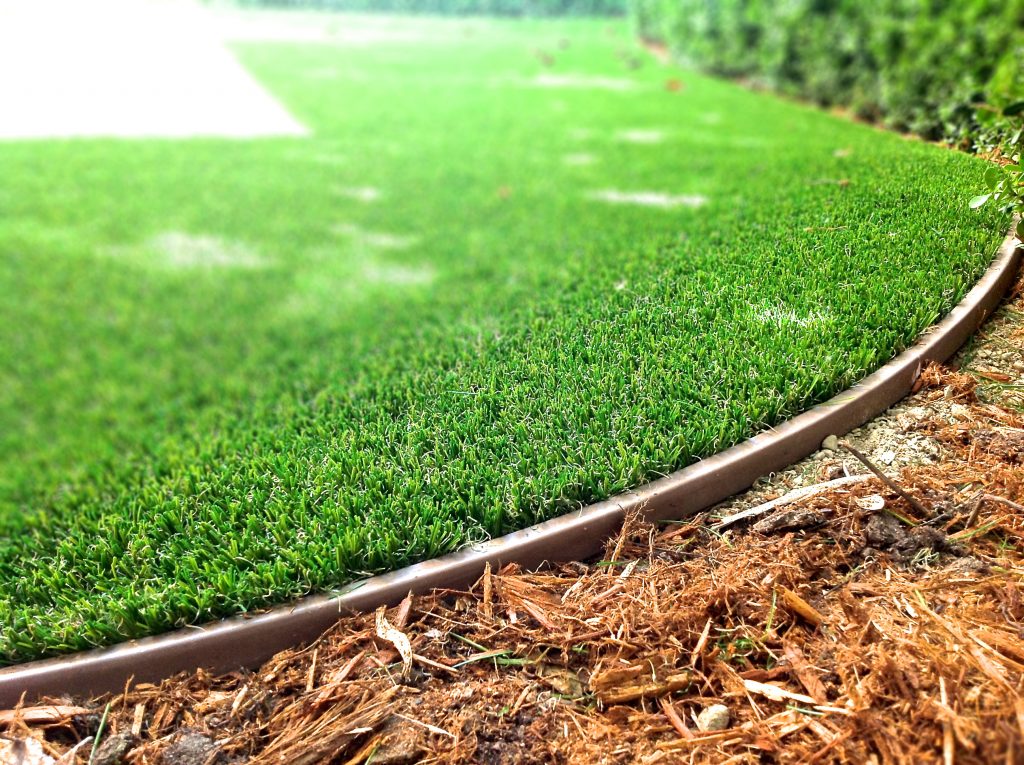Well-Known Phoenix Turf Companies Delivering Best Synthetic Grass Installation
Well-Known Phoenix Turf Companies Delivering Best Synthetic Grass Installation
Blog Article
See Why Homeowners Prefer Artificial Lawn for Lasting Landscape Design Practices
As home owners progressively focus on sustainability in landscaping, synthetic grass has actually become a compelling alternative to conventional lawn. Its capability to conserve water, minimize maintenance initiatives, and reduce environmental impact settings it as a sensible option for those looking for eco-friendly options. The visual charm and versatility of fabricated grass provide to varied layout preferences. However, the ramifications of this change expand beyond simple convenience and aesthetics, triggering a better examination of how these selections affect broader environmental outcomes. What stays to be explored is the complete extent of benefits that synthetic grass can offer to property owners and the atmosphere alike.
Water Conservation Benefits
One of one of the most considerable benefits of artificial turf is its function in water preservation. Standard yard yards call for considerable amounts of water to maintain their lavish look, usually bring about overuse of regional water sources, especially in deserts. On the other hand, synthetic grass eliminates this need entirely, as it does not need watering. This not just saves water but additionally reduces the stress on community water systems, particularly throughout drought problems.
Moreover, the installation of synthetic grass can add to a more sustainable landscape. House owners can considerably decrease their water expenses, permitting reallocation of resources to various other environmental efforts or household usages. In addition, synthetic grass is developed to hold up against numerous weather conditions without the requirement for additional watering, making it a perfect option for areas facing water shortage.
The ecological benefits extend past instant water financial savings. By decreasing water intake, synthetic grass helps to minimize the effects of environment change, preserving vital communities that are endangered by too much water extraction. As lasting landscape design methods obtain traction, synthetic grass emerges as an accountable option for property owners seeking to produce environment-friendly outside areas.
Reduced Maintenance Efforts
Artificial turf dramatically reduces maintenance initiatives contrasted to typical turf yards. With synthetic turf, property owners can eliminate the lengthy jobs connected with all-natural landscape design, such as mowing, fertilizing, and weeding. This not only saves useful time yet additionally reduces physical labor, making yard care accessible for people of every ages.
Conventional lawns require regular trimming to keep a cosmetically pleasing height, whereas man-made grass stays constantly lush without the requirement for reducing. Furthermore, home owners no longer need to apply fertilizers or pesticides, which are frequently called for to maintain natural turf healthy and balanced.
Furthermore, synthetic grass is resilient and resilient, needing marginal maintenance beyond periodic cleaning and rinsing to remove particles. This ease of maintenance enables house owners to enjoy their exterior rooms without the constant concern of maintenance, supplying more time for leisure and household tasks. Eventually, the reduced maintenance efforts connected with artificial turf make it an appealing alternative for those looking for a low-maintenance, aesthetically appealing landscape.

Environmental Influence Reduction
There is a growing recognition of the ecological advantages connected with synthetic grass, specifically in regards to water conservation and minimized chemical usage. Traditional grass call for substantial quantities of water, particularly in drought-prone areas, leading to boosted strain on neighborhood water resources. In comparison, synthetic lawn eliminates the demand for watering, dramatically lowering water usage and promoting sustainability.
Furthermore, conventional yard upkeep commonly involves the application of pesticides, herbicides, and fertilizers, which can add to soil and water contamination. Synthetic grass alleviates this environmental danger by calling for marginal upkeep and practically getting rid of the demand for damaging chemicals. This not just enhances soil wellness however also protects regional ecosystems from harmful drainage.
Furthermore, the manufacturing of all-natural turf yards generally includes using nonrenewable fuel sources for cutting and landscaping tools, additional adding to greenhouse gas exhausts. By choosing synthetic grass, house owners can considerably decrease their carbon footprint connected with lawn care activities.
Aesthetic Allure and Flexibility
In enhancement to its ecological advantages, synthetic grass offers significant visual appeal and adaptability for landscaping. Homeowners can achieve a lush, environment-friendly appearance year-round, removing the seasonal fluctuations typically connected with natural grass. This constant visual not only boosts the aesthetic charm of a property yet additionally adds to a refined and well-maintained appearance.
Additionally, synthetic grass is readily available in a selection of shades, textures, and designs, enabling for modification to fit individual choices and style styles - Turf installation phoenix az. Whether utilized in residential yards, industrial areas, or entertainment areas, it can seamlessly incorporate right into diverse landscaping styles, from modern minimalist to lush tropical settings
The adaptability of fabricated lawn prolongs past plain appearance; it can be set up in various areas, including rooftops, patio areas, and also interior areas, developing chances for distinct landscape design options. Additionally, it appropriates for an array of activities, from youngsters's play areas to pet-friendly environments, giving capability without compromising design.
Ultimately, the visual appeal and flexibility of artificial grass make it an appealing alternative for home owners looking for sustainable landscape design solutions that do not give up beauty for environmental duty.

Long-Term Expense Financial Savings
Among one of the most engaging benefits of synthetic grass is its capacity for long-lasting price financial savings. Unlike natural turf, which requires regular upkeep-- consisting of mowing, watering, fertilizing, and pest control-- synthetic grass considerably minimizes these recurring expenditures. Home owners can save a considerable amount on water bills, particularly in areas where water shortage is a pressing issue. The removal of lawn treatment solutions even more adds to monetary cost savings, as there is no demand for specialized tools or labor.
In addition, man-made grass has a life-span of 15 to 25 years, relying on its top quality address and use. This sturdiness lessens substitute expenses, making it an extra affordable option over time. The initial investment in artificial grass can frequently be redeemed through the cost savings built up over time.
While the in advance price may seem higher contrasted to sod setup, the collective cost savings from lowered maintenance and water usage commonly outweigh these preliminary expenses. Inevitably, the adoption of synthetic grass not only advertises a lasting landscaping service yet additionally offers house owners a monetarily savvy option that lines up with lasting budgeting objectives.
Conclusion
Man-made grass emerges as an engaging alternative for sustainable landscaping, offering substantial benefits in water conservation, reduced upkeep initiatives, and decreased environmental influence. As areas progressively prioritize eco pleasant practices, the fostering of fabricated grass represents a dynamic action toward attaining resistant and sustainable landscapes.
Additionally, man-made turf is made to stand up to various climatic problems without the need for supplementary watering, web link making it a suitable option for areas dealing with water deficiency. (Arizona artificial turf)

Synthetic turf arises as an engaging choice for sustainable landscape design, supplying considerable advantages in water preservation, lowered upkeep efforts, and lessened environmental effect.
Report this page